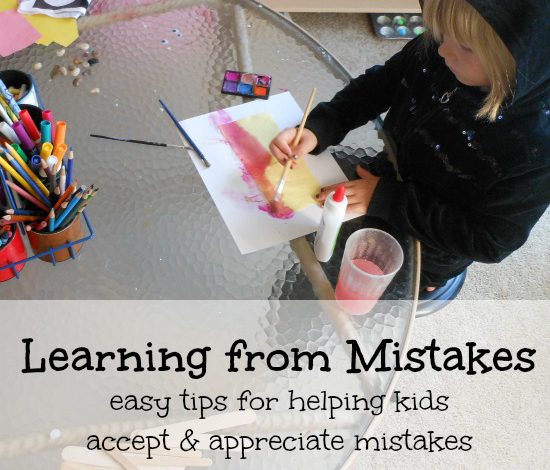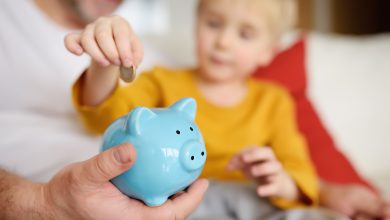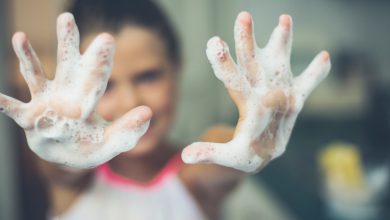Learning from Mistakes: How to Appreciate Mistakes

Raising creative thinkers is one of the top priorities in our house. That is why we talk so much about the books we are reading and work so hard to provide down time. Creative thinkers meet problems, challenges and new situations with the confidence. They know that no matter what, they will eventually find an answer or figure out how to make a situation work.
In order to be creative thinkers we must be not only be willing to make mistakes, we must know how to celebrate them. Not every endeavor will be successful; in fact a lot of ideas quickly flop. The way mistakes are treated will greatly affect how kids meet the next challenge, the next creative idea. How do you handle mistakes made by your kids? How do you handle your own mistakes?


Learning How to Handle Mistakes by Watching
I’ve said it before, and I will say it again. Kids want to be like their parents. If the way you want your kids to react when they make a mistake and the way you actually react when you make a mistake are different… you have a problem.
- Do you beat yourself up when you break something? Call yourself names? Do you get frustrated and lose your temper when something you are trying doesn’t work out the first time? How does it feel when you see your little one giving up or breaking down in tears when they spill their milk?
- The quickest way I have found to change the behavior of my kids is to change my own behavior. There is good news in that. It means you hold all the cards. All you have to do is change your behavior. Easy. (I’m teasing, of course.) But if setting your kids up to be able to handle and then learn from their mistakes is important to you, it’s worth it!
- While I am describing techniques for helping kids handle and appreciate mistakes, remember to practice these tips on yourself first!
Learning from Mistakes with Natural Consequences
Mistakes can be frustrating but they are so important and so is learning how to accept them. When kids feel safe to make mistakes they are far more likely to try something new. Does this mean there are never consequences as long as they can claim they were just trying something new? Of course not. Consequences are an important part of life and if mistakes are handled in a way that is kind, patient and thoughtful the consequence can sometimes be the biggest lesson of all.
A natural consequence is one that parents have nothing to do with. If a kid is rocking in his chair, the natural consequence could be that the chair falls over (taking the kid down too). Accidentally mixing colors on a canvas because you didn’t let the first layer dry is a natural consequence. (As well as a great lesson in how paint works!) Natural consequences help kids learn because they directly relate to the situation.
Learning to Use Mistakes
Creative thinkers have figured out how to make mistakes work for them. They have learned how to look at a mistake and figure out what might work better. They see that the mistake has actually taught them something about what they are trying to accomplish.
When you are using natural consequences something wonderful happens. You are no longer the “ruler handing out punishments” suddenly you are the support team. With natural consequences you are free to relate to your kids feelings. You can now guide their reaction to one that is positive rather than negative. You will be in a position to help understand how to make mistakes into lessons. Here are some tips to make that easier!
- Validate the emotion your creative kid is feeling. “You thought that would work but it didn’t. I imagine you feel frustrated.”
- Help your little one look at the problem. “Why do you think it didn’t work?”
- Figure out what they learned from it and suggest they try again. “If that didn’t work because of (whatever the reason) what will you do differently when you try again?”
- Once your kid has accomplished the task make sure to find out how they feel about sticking with it. “You were feeling frustrated in the beginning, now that you have done what you wanted… how do you feel?”
What would you add about the importance of learning from mistakes? Do you have tips that work for you or with your kids?





